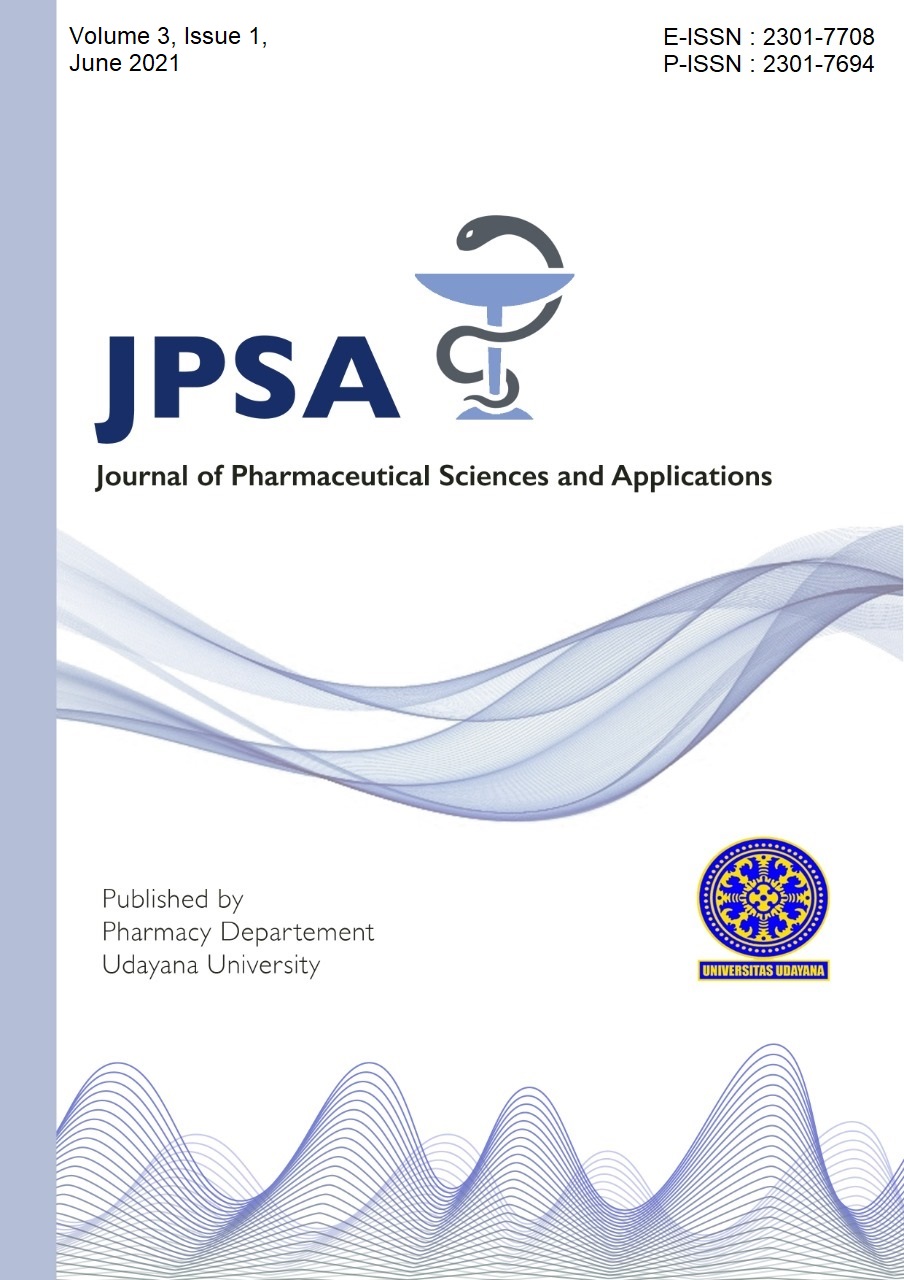PHARMACIST’S ROLE IN MEDICATION RECONCILIATION TO PREVENT THE RISK OF MEDICATION ERROR AT BALI MANDARA HOSPITAL
Abstract
Background: Pharmacists have an important role in implementing drug reconciliation. The implementation of drug reconciliation allows the process of identifying drug administration errors due to information gaps, which we can avoid by optimizing information as early as possible at every shift in the process of providing health services through the reconciliation process. This process is crucial, especially for groups of patients with chronic diseases who have a high risk of changing health care delivery settings. Failure to identify results in errors in administering drugs that lead to worsening clinical conditions, resulting in increased service needs and health costs. Objective: Provides information about the tendency of pharmacists who work at the UPTD Bali Mandara General Hospital to reduce drug use errors through the drug reconciliation program. Methods: Thematic analysis of structured interview results. Results: Almost all participants (6 out of 8 pharmacists) tend to be willing to be involved in the drug reconciliation process. There are three main themes of consideration that underlie the tendency of pharmacists to be willing to be involved in the drug reconciliation process, namely, related to understanding the definition, purpose, and consistency of the implementation of reconciliation. In controlling the incidence of medication errors, the biggest preventable errors through medication reconciliation are drug duplication and drug discrepancy. Conclusion: The tendency for pharmacists to be involved is good, and the tendency to control the risk of medication errors is still lacking in terms of communication and consistency in filling out by all officers.
Keywords: Pharmacist’s role, drug reconciliation, risk of medication errors
Downloads

This work is licensed under a Creative Commons Attribution 4.0 International License.
Authors who publish with this journal agree to the following terms:
Authors retain copyright and grant the journal right of first publication with the work simultaneously licensed under a Creative Commons Attribution License that allows others to share the work with an acknowledgment of the work's authorship and initial publication in this journal.
Authors are able to enter into separate, additional contractual arrangements for the non-exclusive distribution of the journal's published version of the work (e.g., post it to an institutional repository or publish it in a book), with an acknowledgment of its initial publication in this journal.
Authors are permitted and encouraged to post their work online (e.g., in institutional repositories or on their website) prior to and during the submission process, as it can lead to productive exchanges, as well as earlier and greater citation of published work. (See The Effect of Open Access).

This work is licensed under a Creative Commons Attribution 4.0 International License.


 HOME
HOME
















